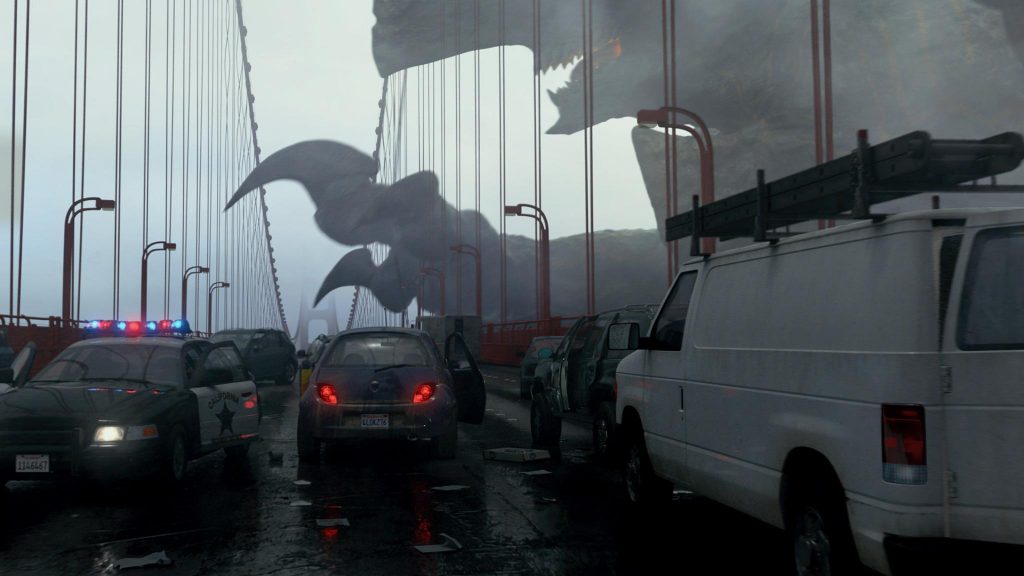About a year and a half ago, when the ranty writing blog was still out in the wild, I did a post about being a little cautious when I use made-up words in fiction. Y’know, words like cromulent or midichlorian or squale. In the comments, Oliver asked if the same would hold for real-world foreign languages as well. Should I be cautious using, say, Japanese words the same way I would be using Klingon technospeak?
Which is why I’d like to talk about paint.
I think we’re all familiar with the idea of slapping a quick coat of paint on something to make it look new or different, right? House flippers do it, painting rooms with the latest colors and shades. Not unheard of for a used car to get a fresh coat of paint on it either. Heck, if you’re familiar with Games Workshop, I’d guess 83% of their “new and different” armies are just a lot of the same models with different colored paint on them. Again, it’s not a new idea. It was blue, now it’s red. It was something we’d seen before and now it’s something cool and different and, y’know… red.
And sometimes… we do this with storytelling. It’s the same character, but now she’s a brunette instead of a blonde. It’s the same old capitalism, but now they’re credits instead of dollars. Same problems, but now he’s hooked on stimms instead of drugs. We slap on a quick coat of paint and whoa-ho! now it’s an alien future world with a different financial system and everything! Hey, those stimms are fifty credits each! Your Earth-dollars are no good here on our very different alien planet.
Now let’s talk about languages…
I want to be clear this is a “no easy answers” topic. Much like with completely fictional words, a lot of it’s going to depend on the story, my intended audience, and context. This isn’t something where I can say “only four foreign words per page and never do more than sixteen per chapter” and that answer will fit every scenario in every book by every other author. There’s just too many possibilities to cover.
There’s also that whole gray area of words I can feel relatively confident most people don’t think of as foreign-language words. Even here in the United States, where the majority of our paler citizenry famously only knows one language, most folks would understand words like bonjour, quesadilla, dosvidania, kaiju, aloha, or gesundheit. So should we be counting them? Do I need to explain what a quesadilla is? Or a kaiju?

Anyway, rather than give out any firm rules for how to do this, I’d like to offer you a couple of loose guidelines to keep in mind.
First off, why am I including these words? In a general sense, but also specifically this one and that one and those three on the last page. Am I trying to establish a setting or a character’s speech pattern? Or am I just slapping down that coat of paint to give my characters or setting a thin veneer of “otherness”? Yeah, look, we’re definitely in Cairo now– see, the guy said shookran instead of thanks.
I want it to be clear these words are necessary. They’re an integral, load-bearing part of the setting and the characters. And just in case you didn’t know… paint isn’t load-bearing.
Second, is it going to be clear to my readers what these words mean? Maybe not exactly crystal clear, but is there enough on the page, in context or subtext, for a reader to figure out this is a piece of clothing (maybe outerwear), that was her brother’s name, and that was an expletive (and definitely not one you’d use around your mother)? If there’s not enough there for my reader to understand it, is it going to get explained to them? And if they can’t figure it out and I’m not going to explain it… is it really a word I need?
There’s a bunch of ways to use words in my writing that my readers might not know. I want to remember that hitting an unknown, indecipherable word will break the flow of my story for a reader.
Also worth noting an important aspect of this—my chosen audience. We all want our books to be international best sellers with three or four million readers, but the truth is we’re probably going to be aiming at a specific group of people. Even if it’s just something like “sci-fi fans” or “religious thriller fans.” And hey– religious thriller fans might know a lot more Latin than the average reader. So I might not need as much context/explanation for some of those words.
Third, am I absolutely sure I’m using these words correctly? Look, languages are tricky, complex things. They all have their own subtleties and nuances and… look, this may come as a shock to you but Google Translate is not quite on par with the Federation’s universal translator. Especially now that they’ve plugged it into their half-assed AI. There are languages out there that do things English can’t even wrap its head around. Like, you may remember from high school that a lot of other languages have feminine and masculine verbs. Heck, y’know how English has singular and plural? Well, Arabic has dual. Yep, a whole way of dealing with verbs and nouns that’s specifically for two people. Spend a few minutes thinking how that changes how you write. And think. And if I’m using these words in the wrong way…
Or how about this–there are some words in English that have multiple meanings, but in other languages they’re actually multiple words. If you don’t know the difference, just looking up how to say this word in German could cause problems, he said, from personal experience. When I was writing The Broken Room, at one point in an earlier draft I’d unknowingly used the Spanish verb “shield” (as in, this lead vest will shield you from the X-rays) as opposed to the noun “shield” (the thing Captain America uses). Still can’t remember what made me check it again, but around the third draft I suddenly just had this weird, gnawing worry about it.

Anyway, those are my three personal rules-of-thumb for using other languages.
And I’ll leave you with this one other thing to consider. Benjamin Dreyer, reigning copy editor supreme at Penguin Random House (that’s his actual title) has suggested maybe we should stop italicizing foreign words. Italics generally mean emphasis, and we used to italicize words in other languages to highlight their difference. These weren’t normal words. They were Spanish words, words people used in some strange, different place.
We’re all past that, right? I mean, did any of you have a problem with aloha and gesundheit not being in italics up above? Maybe it’s time to admit words in another language are just… words.
Things to keep in mind when you write.
Speaking of which…
I haven’t had any suggestions or requests in a while now. I’m sure I can struggle on for a bit longer, coming up with ideas on my own. But if there’s something you’d like an answer to or some help with or just wondered what my thoughts were on a topic… please let me know in the comments. And if not, i guess next time I’ll just blather on about, I don’t know, creative writing classes I took in the past or something like that.
Until then, go write.








